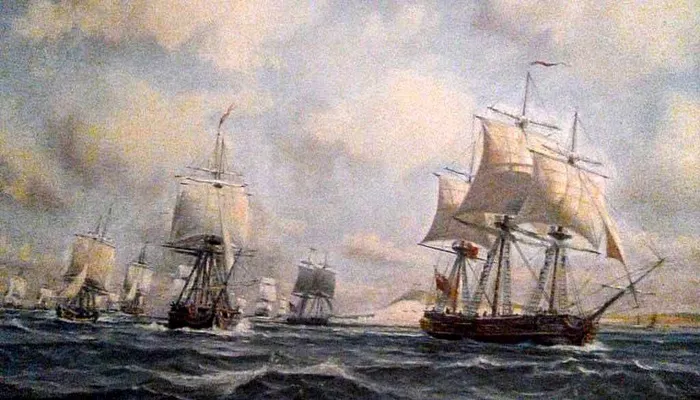April 19 has witnessed several significant events in Australian history. Some of these events shaped the country’s political landscape, social fabric, and military engagements. This article provides a detailed exploration of the historical events that occurred on this day.
What Happened on April 19 in Australian History?
1. James Cook’s Sight of Australia (1770)
One of the most significant events in Australian history occurred on April 19, 1770. On this day, Lieutenant James Cook and the crew of the HMS Endeavour first sighted the east coast of Australia. This event marked the beginning of European interest in the continent. Cook had been sent on an expedition by the British government to chart the transit of Venus and explore the unknown southern lands.
Cook and his crew, including botanist Joseph Banks, were on a voyage that led them from Tahiti through the South Pacific. On April 19, they saw what is now known as Point Hicks in Victoria. The sighting was recorded in Cook’s journal, making it one of the first documented encounters between Europeans and the Australian landmass.
Although Cook’s voyage did not immediately lead to colonization, it played a crucial role in British plans to establish a settlement. Less than two decades later, the First Fleet arrived in Australia in 1788.
2. World War I – Australian Troops in the Gallipoli Campaign (1915)
In 1915, Australian troops were preparing for their involvement in the Gallipoli campaign. While the official landing at Gallipoli took place on April 25, the days leading up to it, including April 19, were critical. On this day, Australian and New Zealand forces, along with their British allies, were finalizing their plans for the assault on the Ottoman Empire’s coastline.
April 19 was significant because it marked a day of strategic discussions and logistical movements. Soldiers were briefed on their mission, and final preparations were made for the landing. The soldiers were mostly young men from Australia and New Zealand, many of whom had never seen combat before. The Gallipoli campaign, which began shortly after, became one of the most defining moments in Australian military history.
3. World War II – Australia Responds to the Fall of Greece (1941)
During World War II, April 19, 1941, was a crucial day in Australia’s military history. On this day, Australian forces were heavily involved in the defense of Greece against advancing German troops. The Greek and Allied defenses were collapsing under German pressure. Australian and New Zealand soldiers, fighting as part of the British Commonwealth forces, were engaged in intense battles.
As German forces pushed southward, Australian units were forced to retreat towards the southern Greek coastline. The battle for Greece was part of a broader campaign in which Australian troops played a significant role. The events of April 19 marked one of the last attempts by Allied forces to hold their ground before being evacuated.
4. Port Arthur Massacre Debate and Gun Law Reforms (1996)
On April 19, 1996, Australia was in the midst of discussions regarding gun control laws, which were about to change dramatically due to the Port Arthur massacre that occurred on April 28, 1996. Just days before the tragedy, debates over firearm regulations were already happening across Australia.
The discussions on April 19 were part of ongoing concerns about firearm availability in the country. After the Port Arthur massacre, the Australian government introduced some of the strictest gun laws in the world. The laws included a buyback scheme and bans on certain types of firearms. April 19, therefore, stands as a significant date in the timeline leading to gun law reforms in Australia.
5. Cyclone Inigo Weakens but Leaves Destruction (2003)
On April 19, 2003, Tropical Cyclone Inigo, which had previously reached Category 5 strength, weakened significantly. The storm had already caused destruction in Indonesia and threatened parts of northern Australia. Although it had weakened, the cyclone still brought heavy rainfall and strong winds to areas along the Western Australian coast.
Cyclone Inigo was one of the most intense tropical cyclones in the Australian region. By April 19, its strength had diminished, but the damage left in its wake was still a concern for emergency responders and communities affected by floods and winds.
6. Release of the Apology Report for the Stolen Generations (2007)
April 19, 2007, marked an important step in Australia’s reconciliation process with its Indigenous peoples. On this day, the Australian Parliament received a report highlighting the need for an official apology to the Stolen Generations—Indigenous children who were forcibly removed from their families under past government policies.
The report strengthened the case for the national apology delivered by Prime Minister Kevin Rudd on February 13, 2008. It provided evidence of the suffering faced by Indigenous families and recommended steps for healing and reconciliation. The events of April 19, 2007, contributed to the eventual recognition of past injustices and the efforts to make amends.
Conclusion
April 19 has been a day of significance in Australian history, marking events ranging from early European exploration to major military conflicts and political developments. From James Cook’s first sighting of Australia to Australia’s role in both World Wars and modern political changes, this date has played an important role in shaping the nation’s history. Each event reflects different aspects of Australia’s past, from its colonial beginnings to its evolving identity as a modern nation. The history of April 19 serves as a reminder of the country’s challenges, achievements, and continuous transformation.
Related Topics:

